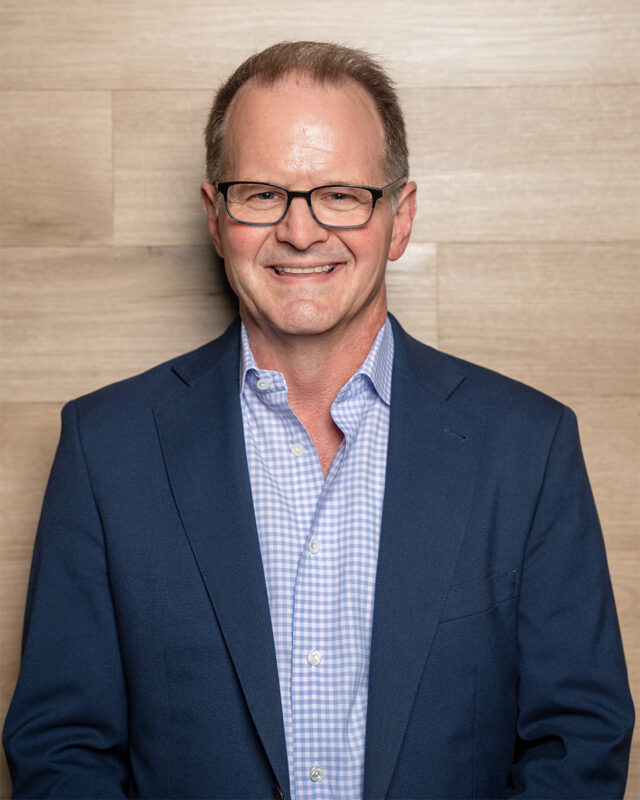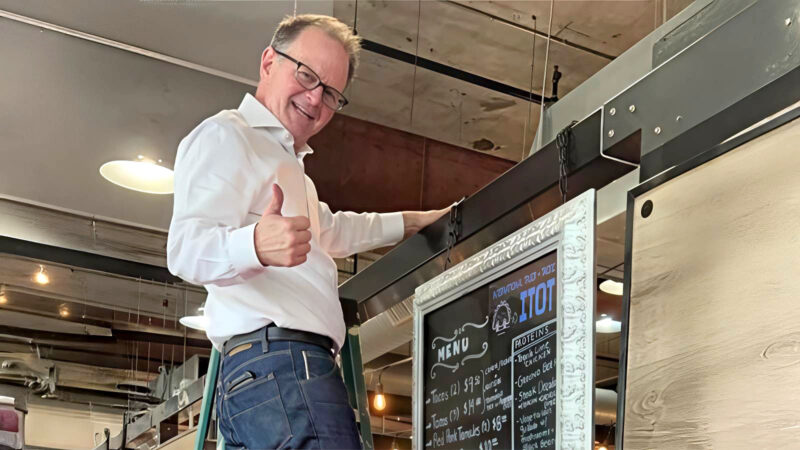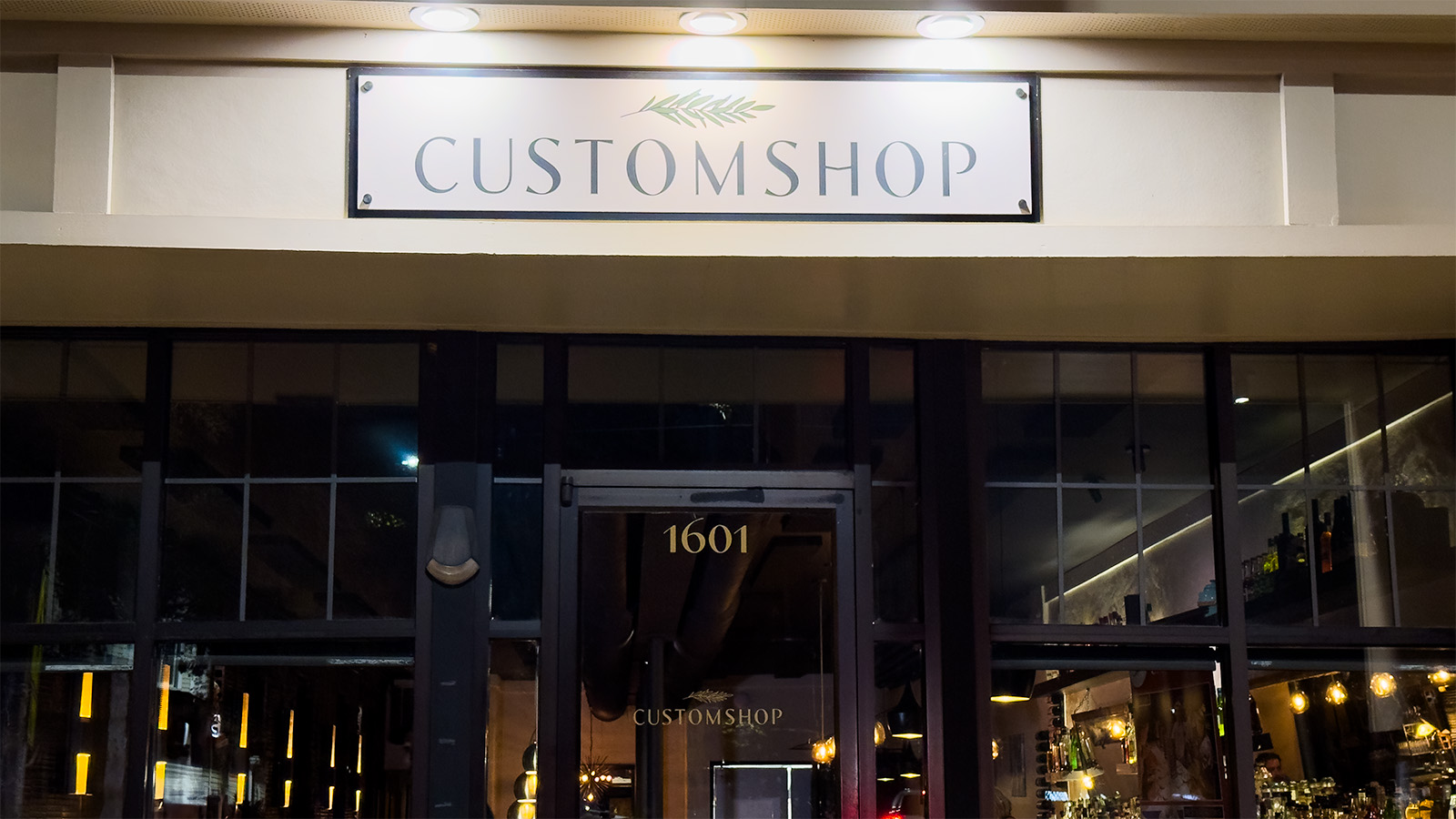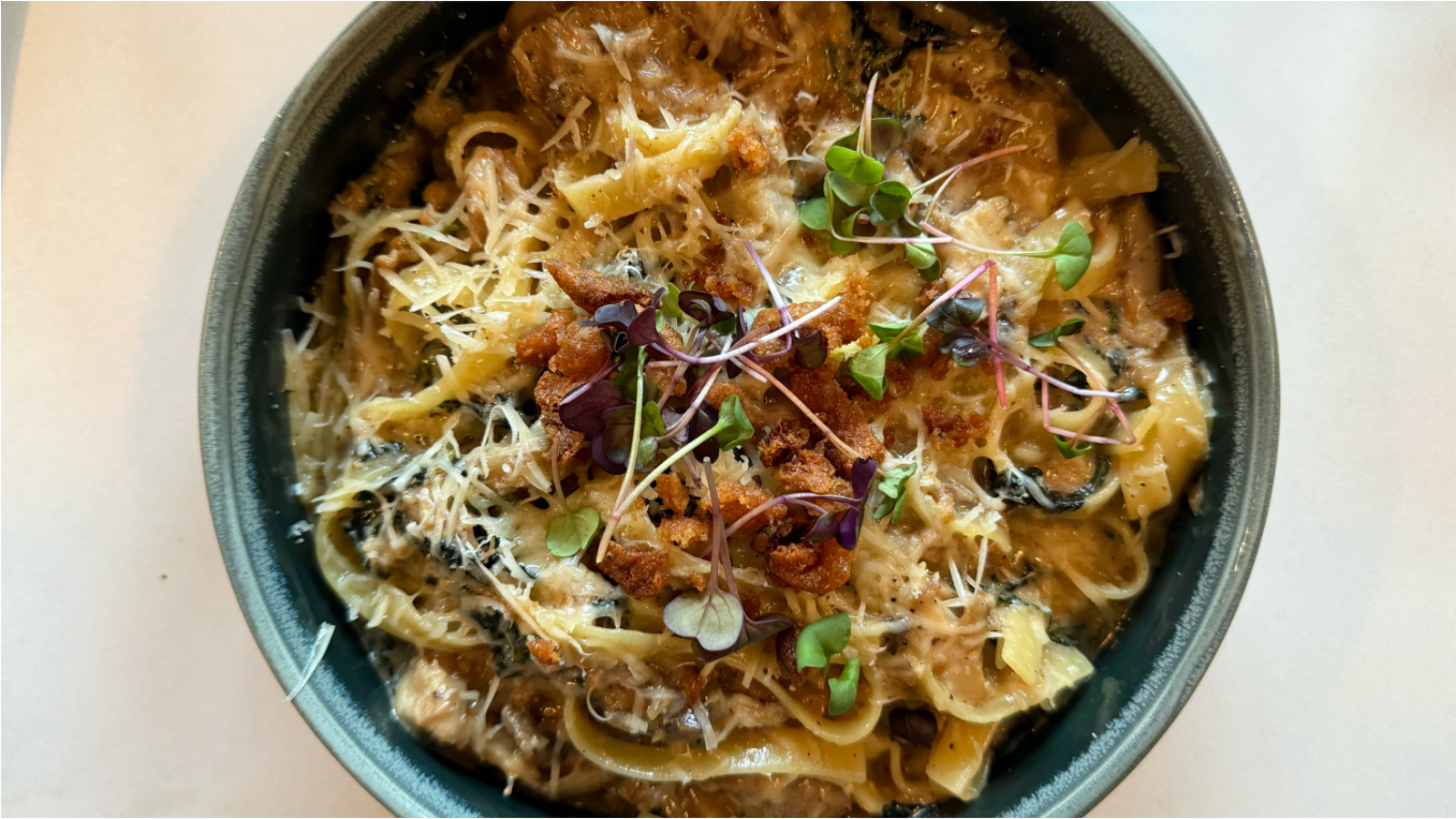May 28, 2025
Day in the Life: Salem Suber, The Market at 7th Street
Working to support the growth of Charlotte’s entrepreneurs
by Jacqueline Pennington

The Market at 7th Street is a staple in Uptown Charlotte, not just for its array of food and retail vendors, but also for the profound impact it has on rising entrepreneurs in our city. Salem Suber took over as Executive Director in 2023 and his days are filled with the ins and outs of running the market, engaging with city leaders, and running the HIIVE program (Hub for Inclusivity, Innovation, and Entrepreneurship).
His ties to the Charlotte food scene go all the way back to when his grandparents owned a beloved restaurant called The Townhouse in Myers Park. Suber was often at the restaurant as a child, getting to know patrons who he would end up crossing paths with again many years later.
After Suber graduated from UNC Chapel Hill, he spent 25 years in the food industry managing restaurants, selling for a major food distributor, and ultimately being a partner in a restaurant and catering business outside of Atlanta, Georgia. After selling his restaurant, Suber and his daughter settled back in his hometown of Charlotte in 2010. Being a single parent who wanted to be present for his daughter, Suber made the decision to look outside of restaurants for his next role. He landed the position of Director of Culinary & Hospitality Services at Southminster Retirement Community to help bring more chef-driven meals to the residents there, some of whom remembered Suber from their days eating at his grandparent’s restaurant.
Suber spent 13 years in that position, hiring Kris Reid as chef to build out the culinary program. Suber and Reid were both involved in founding the Piedmont Culinary Guild when they met Dr. Dan Murray, one of the founding board members of the Market at 7th Street. Many years later, Suber would reach out to Dan about the leadership changes happening at the Market while transitioning away from his role at Southminster. “I called Dan and we both sort of had a eureka moment,” says Suber, realizing that the open position of Executive Director was aligned with exactly what he wanted to do.
“The market is the first food hall in North Carolina and it’s the only not-for-profit food hall in North Carolina,” says Suber. “Our primary mission is to lower the economic barriers of entry for high-aptitude, under-capitalized entrepreneurs. The chefs that were in positions working 70-80 hour weeks, their relationships and their health weren’t surviving it. There are just so many challenges in our industry. The market created a place where high-aptitude chefs could test a concept and open a business with a much lower economic barrier of entry and lower risk. And nobody would leave hurt, nobody would leave bankrupt, and quite often they would learn all the lessons that most restaurants or retail entrepreneurs learn in the first two years of their business that most restaurants don’t survive.”
The lease agreements at the Market at 7th Street are incremental, so the contribution to the lease increases as the business grows. The leases also start below market value thanks to the sponsors that help support the food hall. With this model, the market has served more than 75 businesses in its 14 years.
Suber is involved in the many moving parts that keep the market running. Here’s what a day in his life looks like.

5:30 a.m.: “I have my Furtado Nespresso or a double espresso with MCT oil and collagen protein as my morning breakfast drink. I’ll usually look over and make eye contact with my yoga mat and balance ball and then finish my coffee and not do either thing,” he says.
“Then I’ll check commodity markets just to see if anything crazy is happening in our industry and economic forecast. I just need to make sure that I’m not blind to any outside influences that may be affecting the market or the food industry.”
7:45 a.m.: “I am usually at the market by 7:45 and I do a security walk-through,” says Suber. “I check the HVAC systems and refrigeration. In a large facility your central nervous system is sort of tied to how well that HVAC is running so I like to make sure everybody is set up for success facility-wise.”
Improvements to the facility is one of the many things currently on Suber’s plate to help lower the economic barriers for the tenants of the market. “Right now, I’m spending a lot of time getting quotes on electrical modifications and construction to add an external hood vent, pour a concrete pad, and add a walk-in cooler to the market,” Suber says. “What these structural improvements will do is allow two of our market businesses that currently depend on a third-party commissary lease to cut that umbilical cord so that they can get fully licensed by the health department without a commissary kitchen. We ultimately could reduce the business operating expense of two of our units that don’t have full kitchens by $1,000-$2,000 a month.”
9a.m. On certain days, Suber’s mornings are full of meetings. “The 9 a.m. meetings start with an economic and community development team meeting, which is where the South End and the Uptown Economic Development Teams get together to share what projects and priorities they’re working on,” Suber says. He also attends meetings with the Public Safety Committee and Charlotte Center City Partners.
“Charlotte Center City Partners is a nonprofit economic development organization,” Suber says. “They focus on retaining and attracting business talent and investment in Uptown and South End by providing business data and locally sourced insights to businesses and investors. They also provide a lot of events around Uptown vibrancy that are helping make that transition that our city is working hard to make from a central business district to central activity district.”
11:30 a.m.: “I get back to the market at 11:30 and do some rounds,” Suber says. “I check in with the owners and make sure everybody’s good for the day. We have four stages of incubation at the market or four stages of business development. So, what I do with my day when I have my time to work on adding value to the business is thinking about each business in each stage of that development continuum, how we can modernize our leases to benefit them at each stage of growth to maximize their success and work towards a sustainable financial model for the market by balancing our foundation, sponsorships grants, and the money that businesses pay each month.”
Suber also oversees the HIIVE program, which is a nine week small business development curriculum for business owners. “That was another reason why I was excited about joining the market because just as I joined, they were launching their first cohort,” says Suber. “We’ve successfully graduated two cohorts of 20 and our third cohort of 20 business owners will start being accepted in late July or August. We usually get 60 to 80 applications and 20 of those get brought into the program. And they don’t have to be businesses that would come to the market as a vendor, but those that are compatible with the market can apply to compete within that group to win two six-month, no-cost residencies at the market.”
The newest business to the market is Serengeti Kitchen from Chef Ammalu Saleh, a HIIVE graduate.
2:30 p.m.: “The rest of the day really is checking in with vendors and doing walk-throughs on plans for upcoming events or any maintenance or facility repairs,” Suber says. “Then I check in with the owners just to see how everybody’s feeling and looking for opportunities to participate. They don’t work for us, these are independent business folks. So, being present to listen to what their current needs are is super important if we’re going to add value. We can’t just go out and tell them what we think they ought to do. Apparently, I check in a lot because I think last month my phone told me I average 17,000 steps a day.”
6p.m.: Suber heads home in the evening to make some dinner with his partner of 13 years, Hope Carlson. “We usually cook dinner at home,” Suber says. “A typical meal is grilled salmon with cauliflower, rice, garlic, broccoli, and greens or if we were at the farmers’ market that weekend, then it might be marinated chicken thighs. We eat as early as I get home and watch the news and talk about our day.”
10 p.m.: Suber will sometimes watch a show he and Carlson are binging together before turning in to rest up for another full day at the market doing the very important work he does for our city.
“As a native Charlottean, I grew up in a city that wanted to be like New York, that wanted to be like Atlanta, that wanted to be like Chicago,” Suber says. “Charlotte wanted to be like a big city and it did not yet have all the ingredients to bring authenticity like what I see now. I don’t think anybody’s mindset is we want to be like another city anymore. I think the mindset is this is our vision, this is us, this is what we want to do.”
“The population density of entrepreneurs and the population density of folks in the art community has reached a point where Charlotte is developing its own identity, its own authenticity and that’s something that I’m proud of. The idea that the market’s role in the small business ecosystem is part of expressing that entrepreneurial spirit, looking out for entrepreneurs from previously marginalized communities, and looking out for the small business owners in general during those very precarious first few years of business — that’s something I’m super proud of.”











